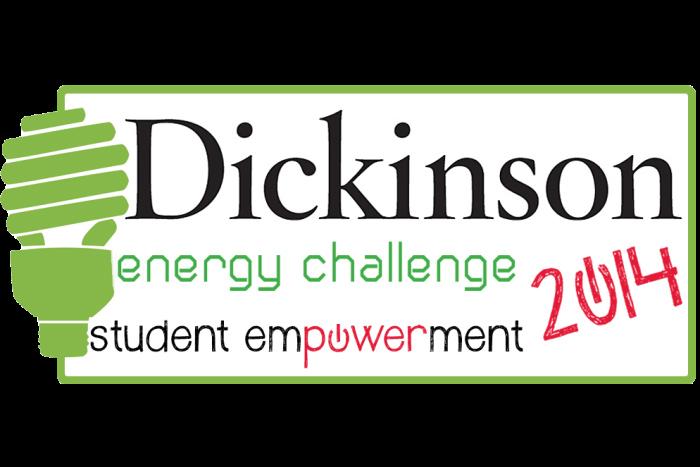Low Energy, High Marks

A portion of the poster that placed in the top three of the Campus Conservation Nationals' educational-poster competition.
Dickinson named a national top-10 energy reducer
Dickinson, a national leader in sustainability education and campus operations, placed among the top 10 reducers of campus electricity in the 2014 Campus Conservation Nationals (CCN), a nationwide effort among nearly 100 colleges and universities to conserve electricity and water. For a three-week period beginning on March 17, more than 2,000 Dickinson students representing 15 residence halls participated in the building-versus-building Student EmPOWERment Energy Challenge to engage and educate campus residents about reducing their carbon footprint and to achieve the greatest reductions in their residence halls.
Stemming from the college’s commitment to reaching carbon neutrality by 2020, the challenge took many forms—from a cafeteria dinner in the dark to a campuswide awareness campaign. The efforts resulted in a savings of nearly 40,000 kilowatt-hours and the avoidance of more than 46,000 pounds of CO2 being emitted into the atmosphere. The cost savings during the three-week period are estimated at approximately $4,000. In addition to achieving top-10 status in electricity reduction, Dickinson placed in the top three for the educational poster it created to promote the Energy Challenge.
CCN is hosted by the Center for Green Schools at the U.S. Green Building Council (USGBC); Lucid, a California-based software company; the Alliance to Save Energy; and the National Wildlife Federation. Dickinson used Lucid’s Building Dashboard to compare residence-hall performance, share winning strategies and track competition standings.
"Dickinson’s Energy Challenge is indicative of the collective philosophy of this institution and college community: that every person should be conscious of the world around them and that we all have a responsibility to do our best to make a positive impact on those around us,” says Brady Hummel ’17, an Energy Challenge coordinator and an analyst with the Center for Sustainability Education. “The campaign helped to build campuswide support for sustainable behavior. We will see residual effects from this great effort for years to come on institutional and individual levels."
Published May 6, 2014